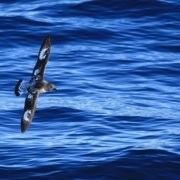What’s the deal with the Plastic Soup again?
March 15 2024 That’s what readers of news site nu.nl on their comment platform Nujij were wondering. In a recent […]
Amsterdam, 14 November 2019 – Noria has developed a system that creates plastic from the water with a wheel. It was tested this autumn together with the Directorate-General for Public Works and Water Management at the weir and lock complex in Borgharen and is working satisfactorily. Inventor Rinze de Vries and co-founder Arnoud van der Vaart expect to have the first specimen operational in the Netherlands in six months’ time.
The strength lies in its simplicity. Running water sets a paddle wheel in motion. This wheel has five blades that remove plastic from the upper part of the water column. The device operates autonomously on water power and has as few moving parts as possible. Therefore, little or no maintenance is required. In waterways, it can be placed in areas where a lot of plastic accumulates. Shipping and fish are not affected.
Strikingly enough, the Noria system is one of as many as four Dutch inventions that are now operational or are about to become operational. The Ocean Cleanup Interceptor was presented at the end of October. This system, developed by the young Dutch inventor Boyan Slat, is aimed at maximum capture of floating plastic in heavily polluted rivers. The Noria system can also be used for this purpose but is also suitable for narrow waterways such as streams and canals.
A third Dutch invention to capture plastic is The Great Bubble Barrier. In this case, a screen of air bubbles stops plastic carried along with the current in the entire water column and directs it to the shore. Amsterdam has the first Bubble Barrier that was officially opened earlier this month.
In a fourth invention, the Shoreliner, floating plastic is led to a trap in the water. This is emptied periodically.
It is a good thing that there is a choice of different collection systems because it will depend mainly on local circumstances which system can best be used where. The next step is to analyze the collected plastic. For example, it became clear from censuses that every two months at the one place where the Shoreliner was located in the port of Rotterdam alone, approximately 250,000 nurdles, the raw material for plastic products, were captured.
Photo: Noria sustainable innovators.
Read also – Shoreliner ideal for analyzing floating plastic waste
Read also – Ocean cleanup goes on the river
Read also – At least 24 million nurdles washed ashore at Dutch coasts
March 15 2024 That’s what readers of news site nu.nl on their comment platform Nujij were wondering. In a recent […]
The first Impact Fair is Europe’s largest Impact Experience. An interactive ‘immersive’ experience of impactful examples.
The waste-export to countries outside of the EU has been restricted The Netherlands is against a carpet ban on shipping of plastic waste.
The waste-export to countries outside of the EU has been restricted The Netherlands is against a carpet ban on shipping of plastic waste.

 Baby napkins and sanitary napkins contribute a lot to the plastic soup
Baby napkins and sanitary napkins contribute a lot to the plastic soup